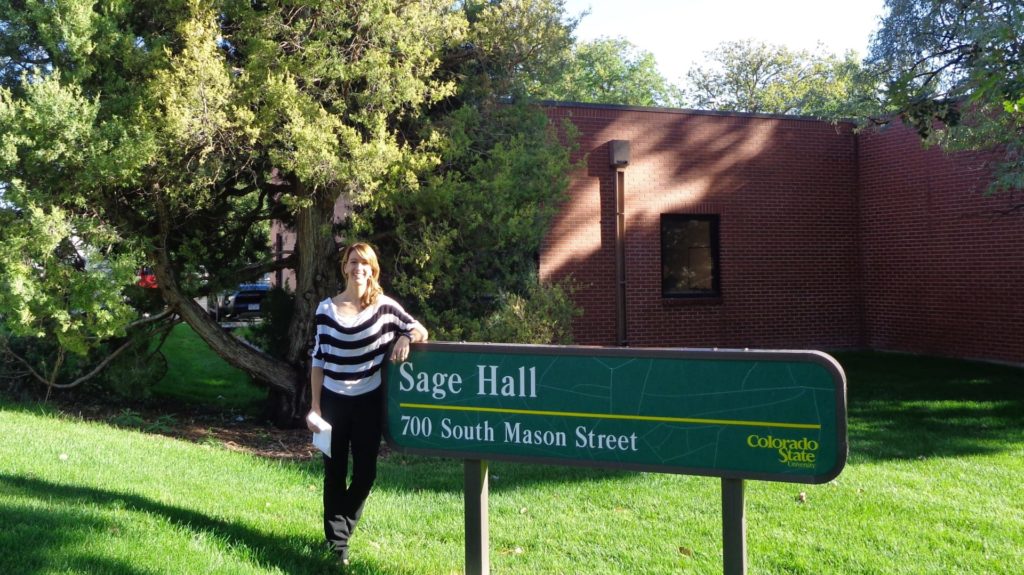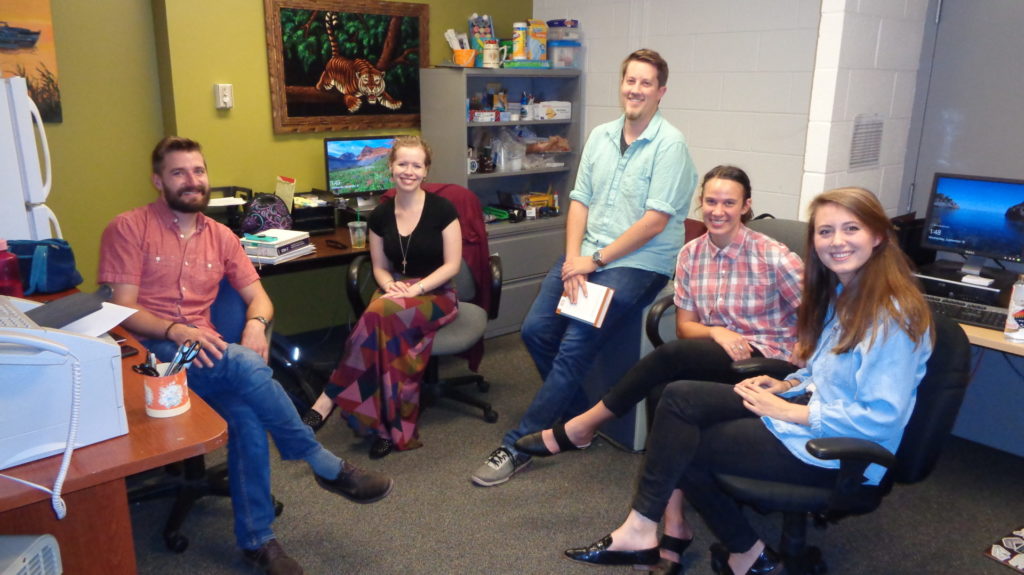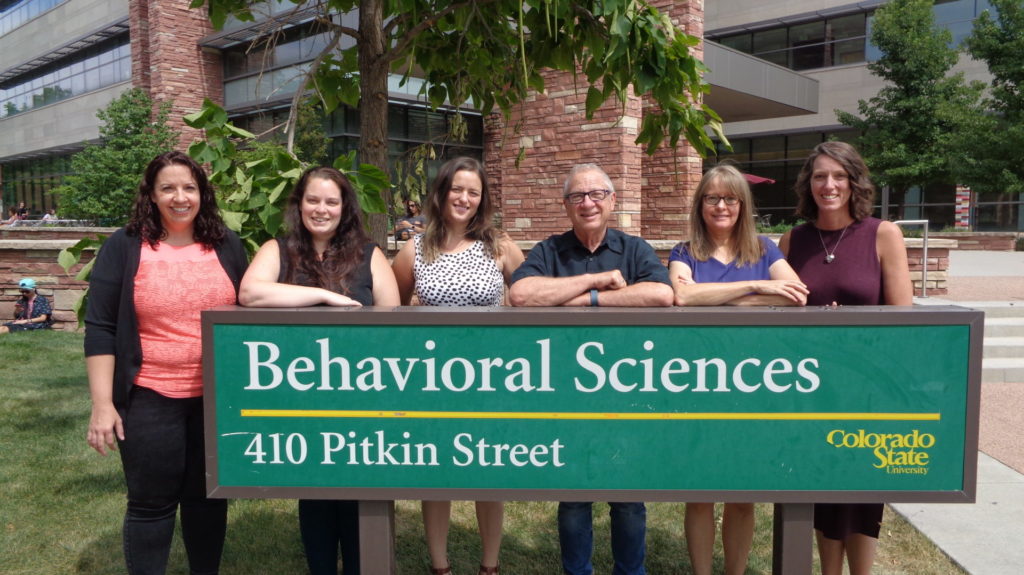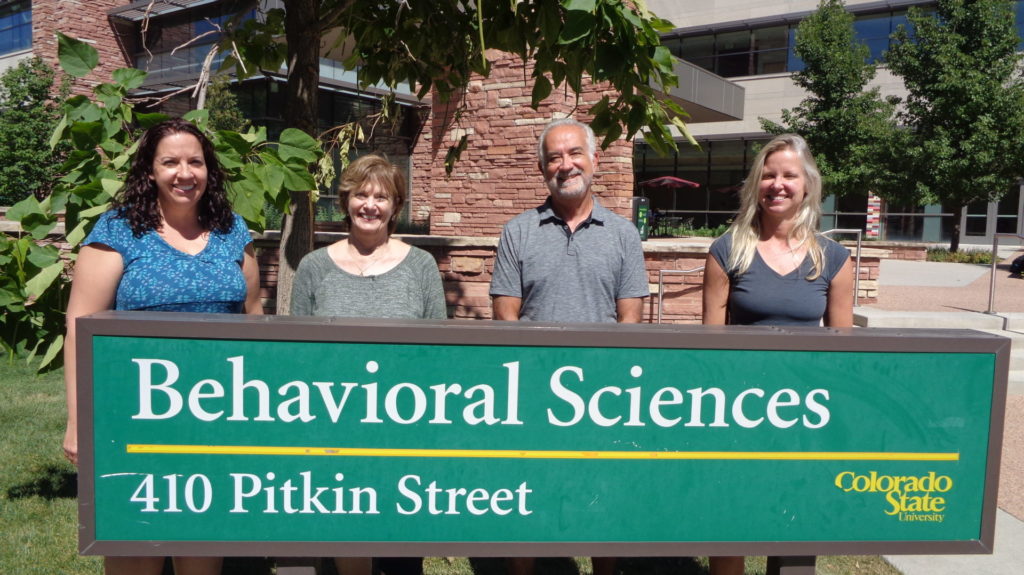Exciting changes took place this semester for two major components of the psychology department. The Tri-Ethnic Center (TEC) and Colorado-Wyoming Alliance for Minority Participation (CO-WY AMP) researchers moved from Sage Hall to the Behavioral Sciences Building, and the Psychological Services Center (PSC) relocated from the Clark Building to Sage Hall. Both groups are now enjoying significant benefits from their new locations.
A new home for the Psychological Services Center
Previously located in the C Wing basement of the Clark Building, the PSC is a mental health clinic where advanced graduate students studying counseling psychology serve as clinicians and are supervised by licensed faculty. The PSC offers therapy for individuals, couples, and families as well as psychological and neuropsychological assessment.

Sage Hall not only offers a brighter and more welcoming atmosphere for the PSC, but a more convenient location as well. The PSC serves the entire Fort Collins community, so Sage Hall’s location near the intersection of Laurel Street and College Avenue is convenient for clients to locate without having to know the layout of Colorado State University’s main campus. Parking passes are available for clients to use in the Sage Hall parking lot, and the building is also less than a block away from the Laurel Street Station on the MAX bus route.
“It’s more accessible to people than it was in the Clark Building,” said Professor Ernie Chavez, chair of the PSC advisory board. “It’s now much more of a community mental health center than it was before, and the new location allows people who don’t have transportation to seek services by taking the bus.”

Student clinicians are also enjoying a greater sense of legitimacy for the clinic in the new location. The PSC lost a bit of space in the transition as well as a loss of proximity to the Behavioral Sciences Building (where most of the psychology department is located), but the team has found the benefits of encompassing most of the new building worth the sacrifice.
“It can be difficult for students to ‘switch hats’ from learner to clinician. My hope is that it is easier for students to make that transition in our new location,” said Assistant Professor Debbie Essert, director of the PSC.
Bringing psychology department researchers home
The Behavioral Sciences Building is home to the psychology department academic advising office, professors’ offices, and most departmental conference rooms. It is also now home to researchers in the department who were previously located in Sage Hall. These researchers work under two distinct groups: the TEC and the CO-WY AMP.

The TEC has been a part of the CSU psychology department since the 1960s. The center focuses on research for underserved members of the population regarding social, psychological, and cultural factors contributing to problems such as substance use, anger management, and school violence. In 1974, the center received a grant from the National Institute on Drug Abuse to monitor and track substance use among Native American adolescents residing on reservations. This study continues to be funded today. The center has received funding from many other prestigious organizations for additional research projects, including the National Institute on Drug Abuse (NIDA), National Institute on Alcohol Abuse and Alcoholism (NIAAA), the Centers for Disease Control and Prevention (CDC), and the Office of Juvenile Justice and Delinquency Prevention (OJJDP).
“We are very happy to be back in close proximity to our colleagues, and we look forward to building even closer ties with both faculty and grad students,” said Randy Swaim, director of the TEC.

The CO-WY AMP is a consortium that serves underrepresented students earning bachelor’s degrees in science, technology, engineering, and mathematics (STEM). The alliance includes 16 institutions of higher education across both urban and rural areas of Colorado and Wyoming. Their mission is to increase the number of underrepresented students who complete baccalaureate degrees in STEM disciplines and increase the number of students prepared to pursue graduate degrees and contribute to a global workforce.
Some members of the CO-WY AMP were already located in the Behavioral Sciences Building, including the alliance’s director Professor Ernie Chavez and co-principal investigator Professor Kim Henry. The rest of the team is now united with them under one roof.